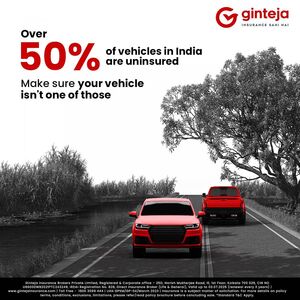Demystifying Auto Insurance: Protecting Your Vehicle and Your Wallet
Body
Auto insurance plays a crucial role in safeguarding our vehicles and providing financial protection in case of accidents or unforeseen events. It is an essential aspect of responsible vehicle ownership, ensuring that we are prepared for the unexpected and protecting both our beloved cars and our hard-earned savings. However, navigating the world of auto insurance can be overwhelming, with its numerous coverage options, policy terms, and pricing factors. In this blog, we aim to demystify auto insurance, shedding light on its significance and helping you make informed decisions to protect your vehicle and your wallet.
Whether you're a seasoned driver or a new car owner, understanding the basics of auto insurance is vital. In this blog, we will discuss the different types of coverage available, such as liability, collision, and comprehensive insurance, and explain how they provide varying levels of protection for your vehicle and other parties involved in an accident.
Who is covered by my auto insurance—and under what circumstances?
Your auto policy will cover you and other family members on your policy, whether driving your car or someone else’s car (with their permission). Your policy also provides coverage if someone who is not on your policy is driving your car with your consent.
Your personal auto policy only covers personal driving, whether you’re commuting to work, running errands, or taking a trip. It will not provide coverage if you use your car for commercial purposes—for instance if you deliver pizzas.
Personal auto insurance will also not provide coverage if you use your car to provide transportation to others through a ride-sharing service such as Uber or Lyft. Some auto insurers, however, are now offering supplemental insurance products (at additional cost) that extend coverage for vehicle owners providing ride-sharing services.
Is auto insurance coverage mandatory?
Auto insurance requirements vary from state to state. If you're financing a car, your lender may also have its own requirements. Nearly every state requires car owners to carry:
- Bodily injury liability – which covers costs associated with injuries or death that you or another driver causes while driving your car.
- Property damage liability – which reimburses others for damage that you or another driver operating your car causes to another vehicle or other property, such as a fence, building, or utility pole.
In addition, many states require that you carry:
- Medical payments or personal injury protection (PIP), which provides reimbursement for medical expenses for injuries to you or your passengers. It will also cover lost wages and other related expenses.
- Uninsured motorist coverage reimburses you when an accident is caused by a driver who does not have auto insurance—or in the case of a hit-and-run. You can also purchase underinsured motorist coverage, which will cover costs when another driver lacks adequate coverage to pay the costs of a serious accident.
Even if PIP and uninsured motorist coverage are optional in your state, consider adding them to your policy for greater financial protection.
What other types of auto insurance coverage are typical?
While most basic, legally mandated auto insurance covers the damage your car causes, it does not cover damage to your own car. To cover your own car, you should consider these optional coverages:
- Collision reimburses you for damage to your car that occurs as a result of a collision with another vehicle or other object—e.g., a tree or guardrail—when you’re at fault. While collision coverage will not reimburse you for mechanical failure or normal wear-and-tear on your car, it will cover damage from potholes or from rolling your car.
- Comprehensive provides coverage against theft and damage caused by an incident other than a collision, such as fire, flood, vandalism, hail, falling rocks or trees, and other hazards—even getting hit by an asteroid!
- Glass Coverage provides coverage from windshield damage, which is common. Some auto policies include no-deductible glass coverage, which also includes side windows, rear windows, and glass sunroofs. Or you can buy supplemental glass coverage.
Factors that affect auto insurance
Here are the factors that influence auto insurance rates:
- Car: The make, model, year, and value of your car can all affect your rates. Cars that are more expensive to repair or replace will typically have higher rates.
- Driving record: Drivers with a clean driving record will typically pay less than drivers with a history of accidents, tickets, or DUIs.
- Commute: Drivers who have a long commute or who frequently drive long distances will typically pay more than drivers who only drive locally.
- Location: The area where you live can also affect your rates. Areas with a high rate of accidents, theft, or vandalism will typically have higher rates.
- Coverage: The type and amount of coverage you choose will also affect your rates. Drivers who choose more comprehensive coverage will typically pay more than drivers who choose less coverage.
- Deductible: The higher your deductible, the lower your premiums will be. However, you will be responsible for paying the first $500, $1,000, or more of any claims you file.
- Insurance history: Drivers who have been with the same insurance company for a long time may qualify for a loyalty discount. Drivers who have multiple policies with the same insurance company may also qualify for a discount.
It is important to shop around and compare quotes from multiple insurance companies before you buy a policy. You can also ask your insurance agent about any discounts that you may qualify for.
Conclusion
Auto insurance is an important financial protection for all drivers. It can help to pay for the cost of repairs or replacement if your car is damaged in an accident, and it can also help to cover the cost of medical expenses if you or someone else is injured in an accident. Term life insurance is another important financial protection for many people. A term policy provides death benefits to your beneficiaries if you die, which can help to cover funeral expenses and other financial obligations.
If you are looking for genuine insurance advice and want to pick the best policies for your needs, come to Ginteja. We have a team of experienced insurance professionals who can help you to understand your options and choose the policies that are right for you.













Comments